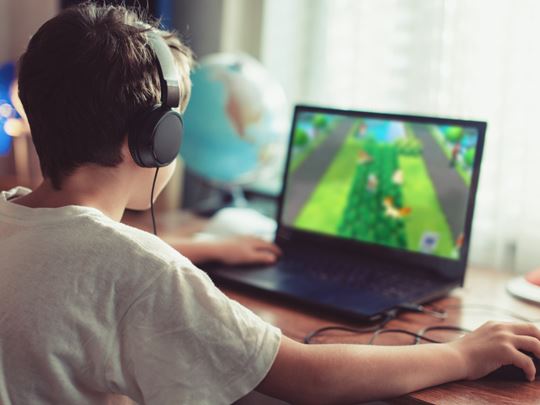In today’s digital age, online safety has become a crucial concern for parents and guardians. Foster parents in particular have a responsibility to keep their foster children safe online as they may have experienced trauma and may be more vulnerable to online risks such as cyberbullying, online grooming, and exposure to inappropriate content. In this guide, we will explore the importance of online safety for foster children, why children in care are especially vulnerable, the online channels they may be using, the risks of social media, and provide tips for keeping kids safe online.
What is online safety?
Online safety refers to the practices and precautions taken to protect oneself and others while using the internet. This includes understanding the risks associated with social media and other online channels, educating oneself and others on how to use the internet safely, and taking appropriate steps to prevent cyberbullying, online grooming, and exposure to inappropriate content.

Why are children in care especially vulnerable?
Children in foster care may have experienced trauma and may be more vulnerable to online risks than their peers. They may have a history of abuse or neglect that can make them more susceptible to forms of online exploitation. Unfortunately, for those from minority backgrounds and communities, they could be at risk of racism and hate speech. That’s why foster parents and caregivers have a responsibility to help protect them from these risks and provide them with a safe and supportive environment. Foster parents who come from the same religious or ethnic background as their young person are in a better position to empathise with what they’re going through, and could have knowledge to share about dealing with the repercussions of racism.
At Active Care Solutions, we provide bespoke, faith-based fostering services to ensure the children that come into our care are placed into foster homes that share the same religious or cultural background. Being with foster parents who understand them on a deep, personal level goes a long way in creating positive outcomes for children from minority backgrounds.

What online channels are children using?
Children in care may be using a variety of online channels such as social media, messaging apps, and online gaming platforms. They may also be using online tools for homework, communication with teachers and friends, and entertainment.
What are the risks of social media?
Social media can be a great way for children to connect with others, but it also comes with risks. Cyberbullying, online grooming, and exposure to inappropriate content are all potential risks associated with social media. Foster children may be more vulnerable to these risks due to their history of trauma and may not have the skills or knowledge to navigate these risks on their own.
- Cyberbullying. Cyberbullying is a form of bullying that takes place online. It can involve sending hurtful messages, sharing embarrassing photos, or making threats. Children in care may be more susceptible to cyberbullying due to their history of trauma and may not have the skills or knowledge to deal with it. Cyberbullying can cause emotional distress and can lead to low self-esteem, depression, and anxiety.
- Online grooming. Online grooming is when someone befriends a child online with the intention of sexually exploiting them. Foster children are at an increased risk of online grooming due to their vulnerability and may not have the awareness to identify and report it. Children who have suffered sexual abuse in their past may be more susceptible to this type of behaviour, as their self-worth could be so low that any form of attention is seen as positive. Online grooming can have a devastating impact on a child’s mental health and can cause long-term damage to their emotional wellbeing.
- Exposure to inappropriate content. Social media can also expose children in care to inappropriate content such as violent or sexually explicit images. This can have a negative impact on their mental health but also their perception of the world around them. If they’re constantly watching graphic videos or consuming content with extremist views, this can pose a danger to themselves and others. The loss or abandonment they’ve experienced could cause them to be easily influenced as a way to feel a sense of belonging, which makes them particularly vulnerable.
- Impact on mental health. The harmful risks of social media can have a significant impact on the mental health of children in care. From body image through to comparing their life with the likes of social media influences, these platforms can be psychologically damaging to a young, impressionable teenager.
Tips for keeping kids safe online
Understand the risks
Before foster parents can take steps to protect their foster children online, they need to understand the risks involved. Children who use social media or other online channels may be exposed to cyberbullying, online grooming, and inappropriate content. Cyberbullying can cause emotional distress and can lead to low self-esteem, depression, and anxiety.
Educate your foster child
Foster parents can protect their foster children online by educating them about the risks of social media and other online channels. Foster children may not be aware of the dangers of the internet and may not know how to protect themselves. Foster parents should teach their foster children about the importance of privacy settings, not sharing personal information online, and not accepting friend requests from strangers. The reality of social media is also something to consider too, as the pictures people post are orchestrated, heavily filtered and not a true representation of reality, so it’s not healthy to compare your lives to theirs. It’s also important to talk to foster children about the consequences of cyberbullying and how to report it if it happens to them or someone they know.
Monitor their online activity
Foster parents should monitor their foster child’s online activity to ensure their safety. This can include checking their social media accounts, chat logs, and internet history. By doing so, foster parents can identify potential risks and intervene before any harm is done. It’s important to note that foster parents should respect their foster child’s privacy and only monitor their online activity with their consent. Monitoring can also help foster parents to identify signs of cyberbullying or online grooming, which can be difficult for children to recognise on their own.
Set boundaries
Foster parents should set boundaries for their foster child’s online activity. This can include limiting their screen time and setting rules around which websites and apps they can use. Foster parents can also restrict access to certain websites or apps that are known to be risky. By setting clear boundaries, foster parents can help their young person develop healthy online habits and reduce the risks associated with social media and other online channels. It’s important to explain the reasons behind the rules, as this will help them to understand the importance of staying safe online, as opposed to seeing it as you simply imposing rules to restrict them.
Encourage open communication
Foster parents should encourage their young person to talk openly about their online experiences. By doing so, foster parents can identify potential risks and provide support when needed. It’s important to create a safe and supportive environment where children feel comfortable discussing what they do online.
If they like to play online video games, it’s a good idea to ask them about who they play with and chat to, especially if the game allows them to connect with people around the world. Foster children who have experienced trauma may be hesitant to share their online experiences, so it’s important for foster parents to be patient and understanding while keeping the conversation light and informal.
Spot changes in behaviour
If a young person is experiencing online bullying, they may become quiet, withdrawn and refuse to go to school. While this type of behaviour could be caused by a number of things, it’s important for foster parents to be vigilant and think about their young person’s online usage. Similarly, if a child is engaging with inappropriate relationships online, they could become extremely secretive about their phone or defensive when you ask questions about who they’re always texting. That’s why recognising changes in their behaviour is so important, so you can act quickly and prevent anything from escalating.
Seek support
Foster parents should seek support from social workers, therapists, and other professionals when needed. If a young person has experienced cyberbullying or other online risks, or is showing signs that they are being targeted online, foster parents should seek advice from their fostering agency on how to support them.
Professionals can provide guidance on how to talk to their foster child about online safety and help them develop healthy online habits. It’s also important for foster parents to take care of their own mental health, as the responsibility of keeping their foster child safe online can be stressful and overwhelming.
We provide our foster parents with a full support package as well as excellent training programmes about topics such as online safety. We want our foster parents to feel empowered and confident in providing the best care possible for vulnerable children.
If you are interested in becoming a foster parent and want to know more about what’s involved, please get in touch today and we’ll gladly answer any questions you have.






